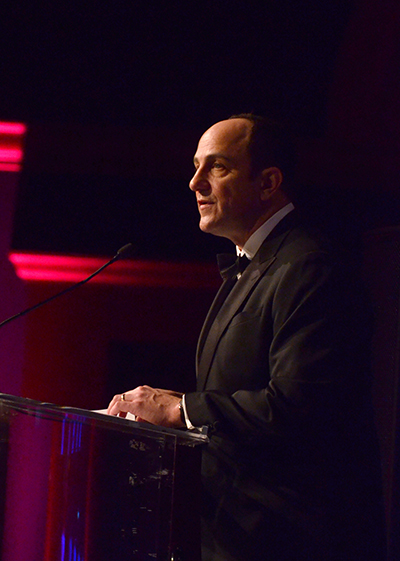I was interviewed on a podcast recently, and the host asked me how it is that I face chronic diseases with such optimism on a daily basis?
My reply was that when you are taking care of people who are sick, providing them with expertise along with hope is an essential part of being a good doctor. But I went on to say that my colleagues and I work in an environment in which we not only strive to achieve the health our patients deserve, but also strive to advance scientific research. We are working to provide them with better care, and importantly, we provide them with the confidence that the future will be brighter than the past.
The progress we’ve made in understanding digestive diseases indeed has been extraordinary. Of course, that is not to say that we don’t have a lot more work to do. In fact, as the pace of scientific discoveries accelerates, my colleagues and I share a pressing need to push the boundaries of our understanding, apply new tools to solve old medical problems, and to be the leaders in the field on behalf of our patients and their families.
It’s urgent for us to do this because it is urgent for you to benefit from it. In prior years at the GIRF Ball I have spoken about the “research imperative” at the University of Chicago, and the unique environment there. This has continued, with our ongoing collaborations with Argonne National Labs, the Marine Biological Labs in Massachusetts, and the Centers for Research Informatics and Data Science. This year has been an amazing year for us and for our colleagues. The Digestive Diseases faculty and collaborators published more than 250 new scientific articles and brought in an impressive number of new research and education grants. We launched alandmark study using wearable biosensors to monitor physical activity and sleep in patients with IBD and predict relapses before the patients realize they are happening.
At the University level, the Duchossois Family Foundation donated 100 million dollars to create the Duchossois Family Institute. This institute promotes the use of science in order to maximize good health and the economic, social, and personal benefits it delivers.
There are obvious benefits of this new institute for those of us in the digestive diseases group and in fact, some of our faculty are leaders of this new initiative. I know Dr. Joe Kirsner and Dr. Walter Palmer would be proud to see the progress we have made and amazed at how much their two-person academic GI unit has grown.
Finally, in two weeks, our latest recruits to the GI Section will arrive from Montreal. PhD scientist Luis Barreiro is bringing his large lab of eight other investigators to join us and will add incredible expertise in what is known as “host genetics.” This will round out our group of established eminence in immunology, led by Professor Bana Jabri and in the microbiome, led by Prof Gene Chang. The fact that Luis has uprooted his family and convinced his large and productive lab personnel to move with him is in large part due to the environment and collaboration that he can pursue here.
Our colleague Gene Chang has said that there is literally no question we can’t answer now if we have the right tools and the right people. Then he usually asks me to get the tools! Tonight you are our agents of change. We have the right people; please help us get the right tools.
[Excerpted from David T. Rubin, MD’s speech given at the 2018 GI Research Foundation ball]

